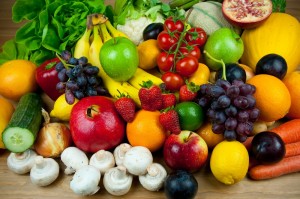By Priyanka Rohit
Vegetarianism is the practice of abstaining from the consumption of meat, red meat, poultry, seafood and the flesh of any animal. The goal of nutritional vegetarian diet should be to help the elderly to achieve a healthy, purposeful and independent living. The purpose of living brings about physiological, psychological and immunological changes which influences our nutritional vegetarian diet.
There are three types of vegetarian diet.
- Lacto – vegetarian which excludes eggs but includes milk and milk products.
- Ova – vegetarian which includes both eggs and milk products.
- Vegan does not include any products from animal kingdom. This is along with the normal vegetarian diet of vegetables, fruits, beans, grains nuts, sprouts mushrooms, tofu, soya, etc. For a healthy diet we need to consume food which has a balance of carbohydrates, proteins, fats, fibre, vegetables and fruits. A vegetarian diet requires higher emphasis on vegetables and fruits.
 Carbohydrates are starches and sugars which are found in foodstuffs and they are the main source of energy. Health authorities recommend that we eat more starchy food, such as potatoes, bread, rice, pasta and maize and cut down our intake of sugars particularly refined sugars found in cakes, biscuits, chocolate etc. Natural sugars do occur in foods like milk and fruits. Refined sugar has no nutrient value and it just has empty Calories.
Carbohydrates are starches and sugars which are found in foodstuffs and they are the main source of energy. Health authorities recommend that we eat more starchy food, such as potatoes, bread, rice, pasta and maize and cut down our intake of sugars particularly refined sugars found in cakes, biscuits, chocolate etc. Natural sugars do occur in foods like milk and fruits. Refined sugar has no nutrient value and it just has empty Calories.
Protein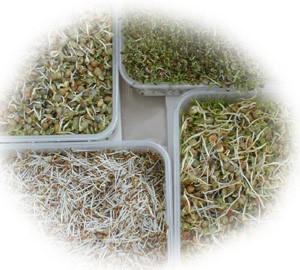 s are required for the growth and repair of our body cells. Protein can be plant or animal in origin but some of the plant protein sources may lack some of the essential amino acids. Proteins are found in eggs, dairy products, whole – grain cereals, pasta, beans, maize, peas, nuts, etc. Combination of plant foods are valuable sources of protein for vegetarian diet. Food containing mixture of pulses (beans, lentils, peas, etc) and cereals (wheat, rice, soyabeans, rye, barley) provide with protein source as good as animal protein. Soyabeans, soyamilk, tofu often replace eggs, milk, and milk products in vegetarian diets as they contain proteins of high nutritional quality.
s are required for the growth and repair of our body cells. Protein can be plant or animal in origin but some of the plant protein sources may lack some of the essential amino acids. Proteins are found in eggs, dairy products, whole – grain cereals, pasta, beans, maize, peas, nuts, etc. Combination of plant foods are valuable sources of protein for vegetarian diet. Food containing mixture of pulses (beans, lentils, peas, etc) and cereals (wheat, rice, soyabeans, rye, barley) provide with protein source as good as animal protein. Soyabeans, soyamilk, tofu often replace eggs, milk, and milk products in vegetarian diets as they contain proteins of high nutritional quality.
Nuts and seeds when pureed are also useful sources of protein so adequate levels of essential amino acids can be obtained from plant protein. Thus it is easy for the Vegetarian to have entirely satisfactory protein intake but difficult for vegans, though they latter tend to eat a bulkier meal
Fats are also used as the energy source. Saturated fats are found in dairy foods like milk, eggs, biscuits, crisps, chocolates and some vegetable oils. e.g. coconut and palmoil.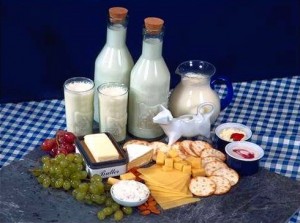
There are two ty pes of unsaturated fats. Polysaturated fats are found in soft margarine made with unsaturated oils. Mono–saturated fats are found in olive oil, peanut oil, avocado and olives. The fat intake of vegetarians is higher in polysaturated fatty acids and monosaturated fat so it should thereby convey a health advantage. A diet with not more than 30% fat is recommended.
pes of unsaturated fats. Polysaturated fats are found in soft margarine made with unsaturated oils. Mono–saturated fats are found in olive oil, peanut oil, avocado and olives. The fat intake of vegetarians is higher in polysaturated fatty acids and monosaturated fat so it should thereby convey a health advantage. A diet with not more than 30% fat is recommended.
Fibre A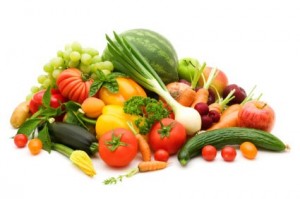 lthough a diet high in fibre is generally beneficial an intake as high as 50g per day may first give sense of bloating will certainly produce considerable amount of colonic gas which may cause discomfort. In addition the fibre may reduce the intestinal absorption of iron, calcium and zinc and perhaps other minerals. We should aim to eat 25 g of fibre everyday. Fibre is part of vegetables, fruits and unrefined cereal grains. Fibre are found in a massive range of fruit and vegetables which includes cabbage, broccoli, carrots, strawberries, turnips, cauliflower, lettuce, onions, pineapples, tomatoes, green pepper, etc.
lthough a diet high in fibre is generally beneficial an intake as high as 50g per day may first give sense of bloating will certainly produce considerable amount of colonic gas which may cause discomfort. In addition the fibre may reduce the intestinal absorption of iron, calcium and zinc and perhaps other minerals. We should aim to eat 25 g of fibre everyday. Fibre is part of vegetables, fruits and unrefined cereal grains. Fibre are found in a massive range of fruit and vegetables which includes cabbage, broccoli, carrots, strawberries, turnips, cauliflower, lettuce, onions, pineapples, tomatoes, green pepper, etc.
Vitamins such as cynocobalamin (B12) are not present in plants, so a vegan may become deficient in this nutrient. Vitamin B12 is present in milk so lacto or ova vegetarians are not at risk from lack of B12, D and B2 riboflavin. Vitamin – fortified soyamilk contains vitamin D B12 & B2 but this is not consumed by the vegans they may require supplements.
Calcium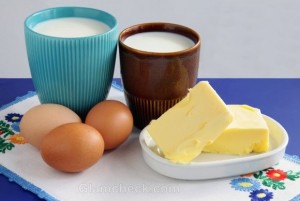 may also be lacking in vegans although it is present in Tofu, flours, corn meal, sesame seeds, almonds, etc. Milk and Milk products are a very important source of calcium.
may also be lacking in vegans although it is present in Tofu, flours, corn meal, sesame seeds, almonds, etc. Milk and Milk products are a very important source of calcium.
Iron Rich Foods For Vegetarians best source of Iron is from the green leafy vegetables like Spinach, Fenugreek, Dill, Amaranth and vegetables like capsicum, broccoli, beetroot etc. Iron from vegetables is harder to absorb into the body, but this can be helped by eating Vitamin C- rich fruits, i.e. Citrus fruits like lime, oranges, grapes, tomatoes, etc which aid the absorption of Iron. Black current (raisins), dates. jaggery is also good source of Iron.
Vegetarians need to have a balanced diet. Distribution of nutrients, quantity of meal, appetite level is very important while consuming the diet. Properly planned vegetarian diets are healthful and have found to satisfy the nutritional needs.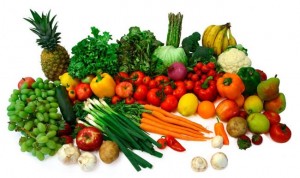 Link to the pdf document of this article is also available here Vegetarianism Fact Sheet
Link to the pdf document of this article is also available here Vegetarianism Fact Sheet
